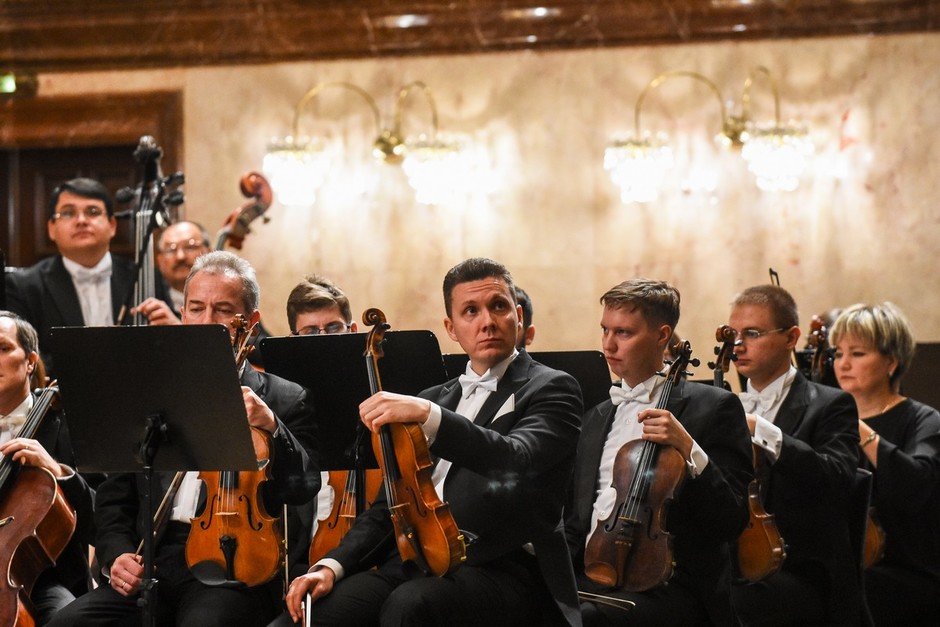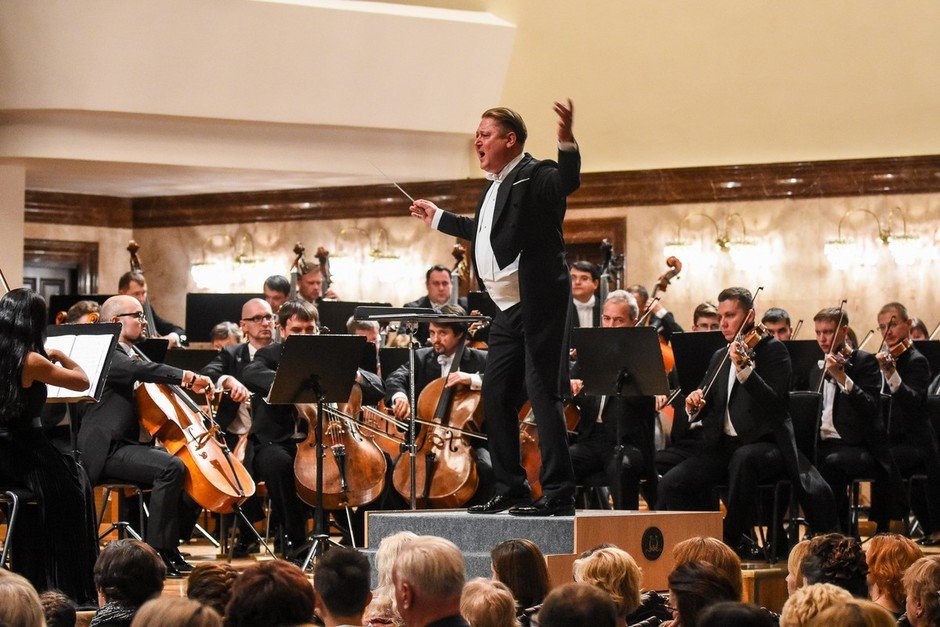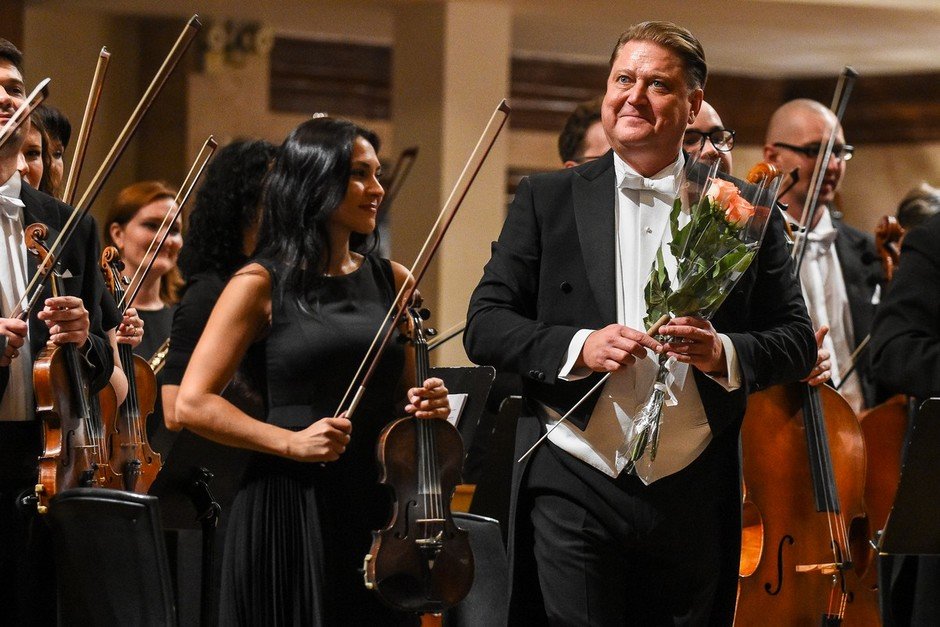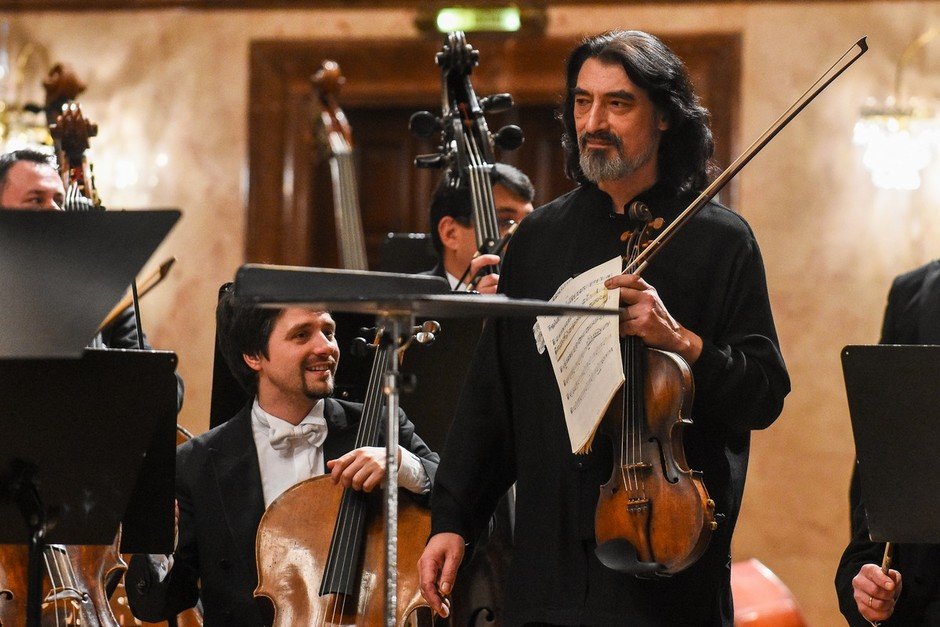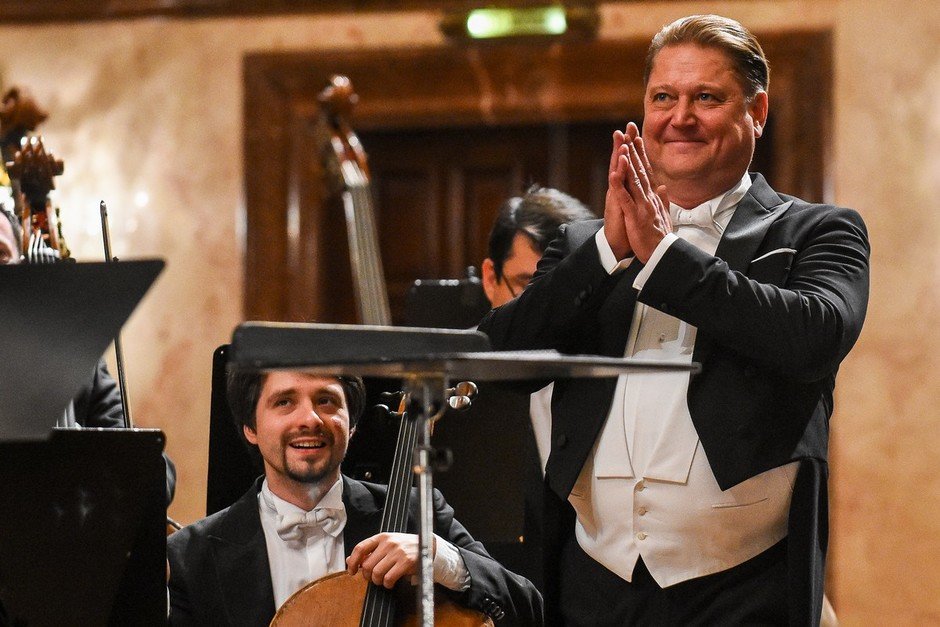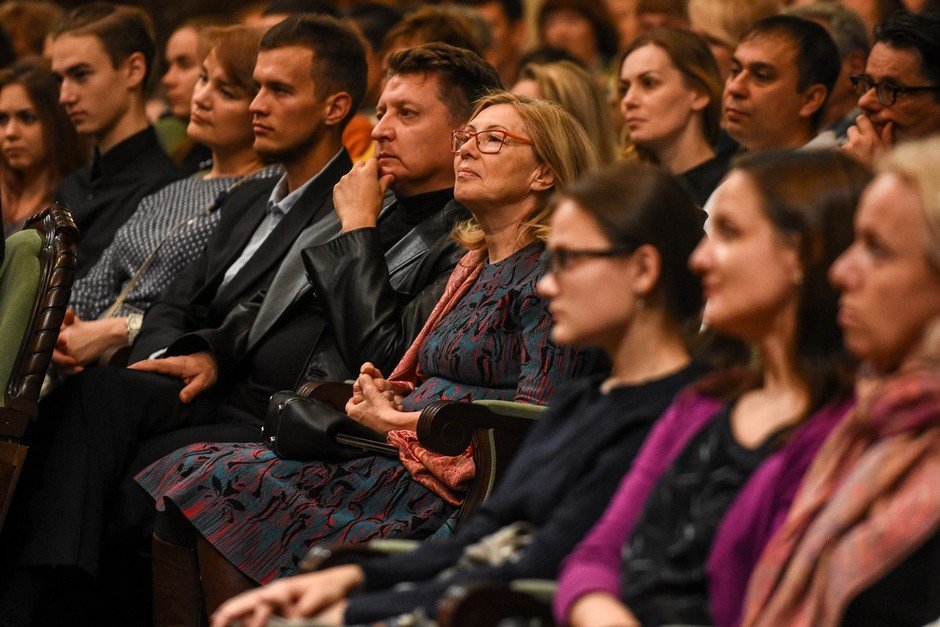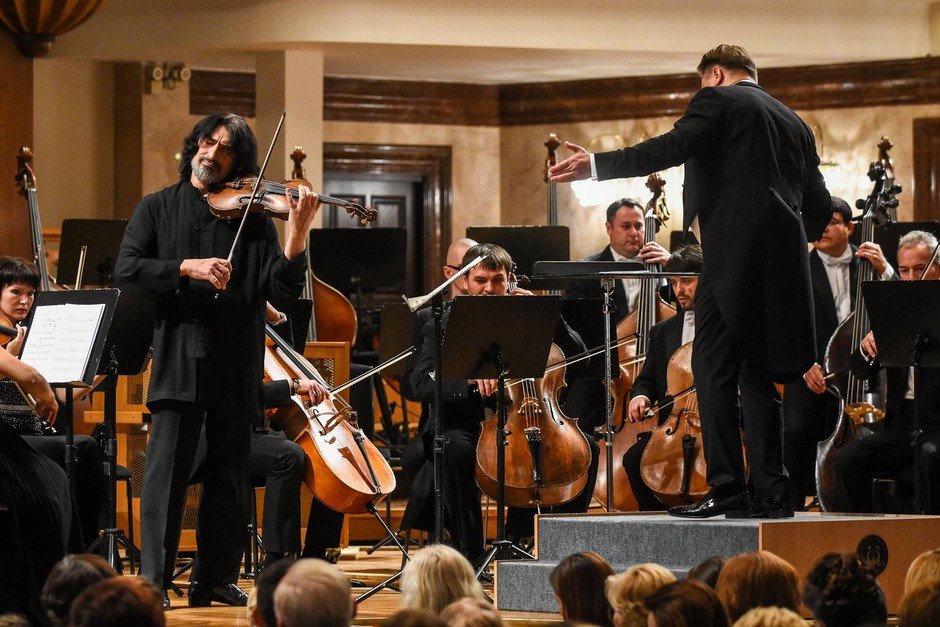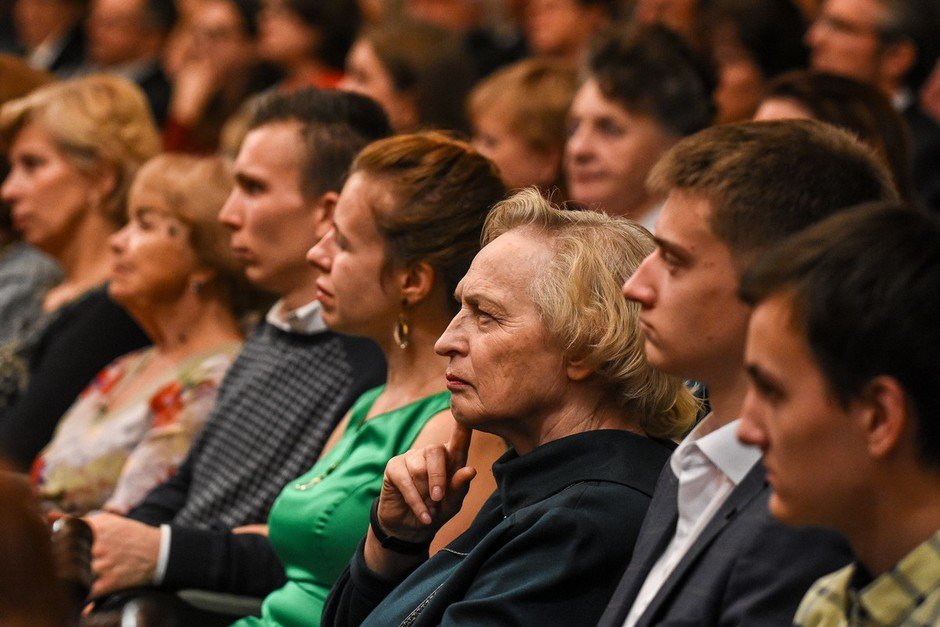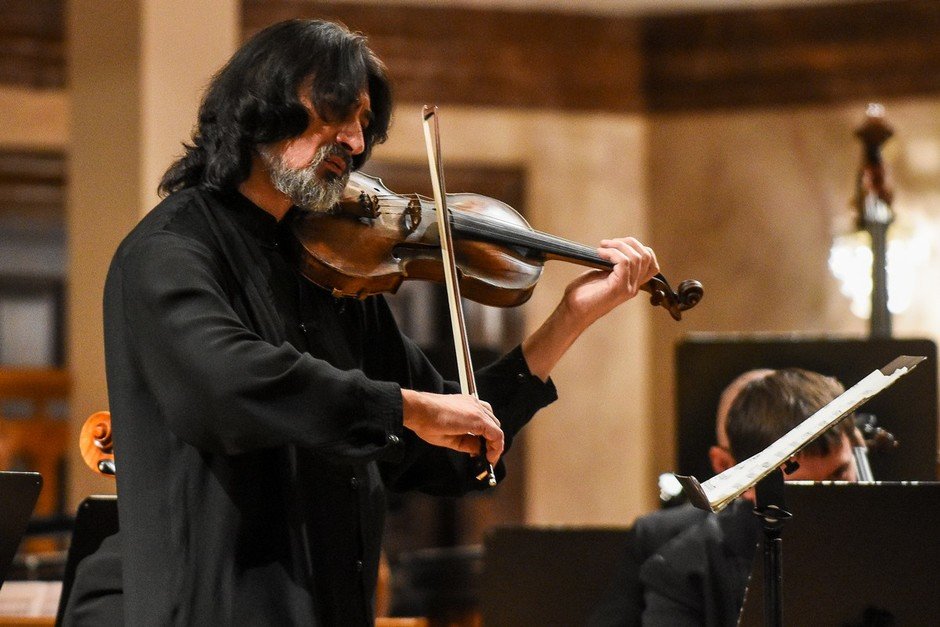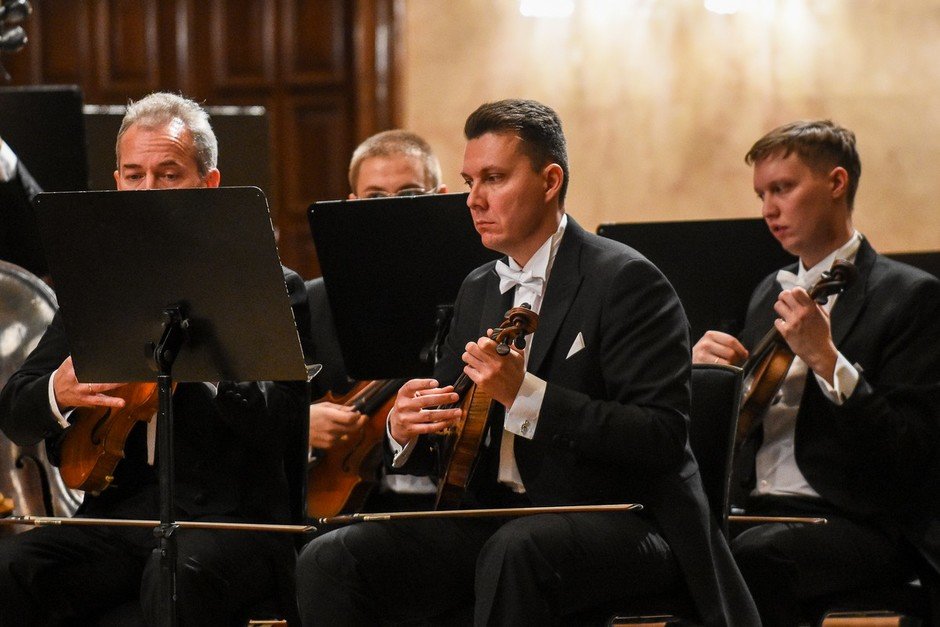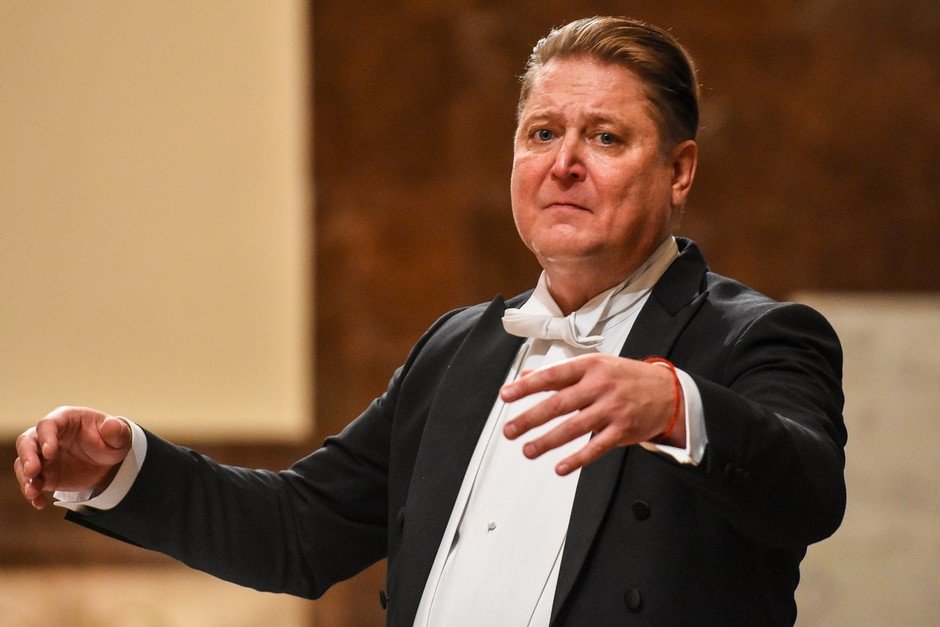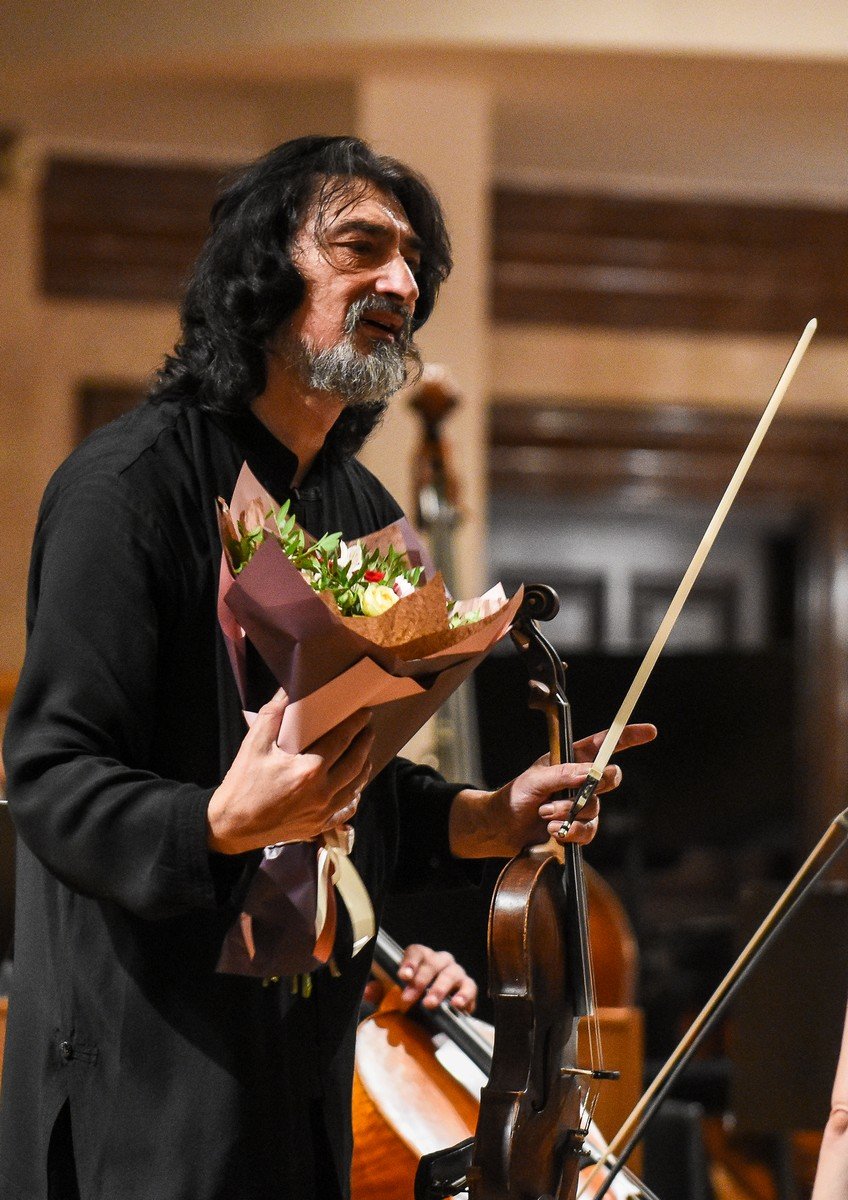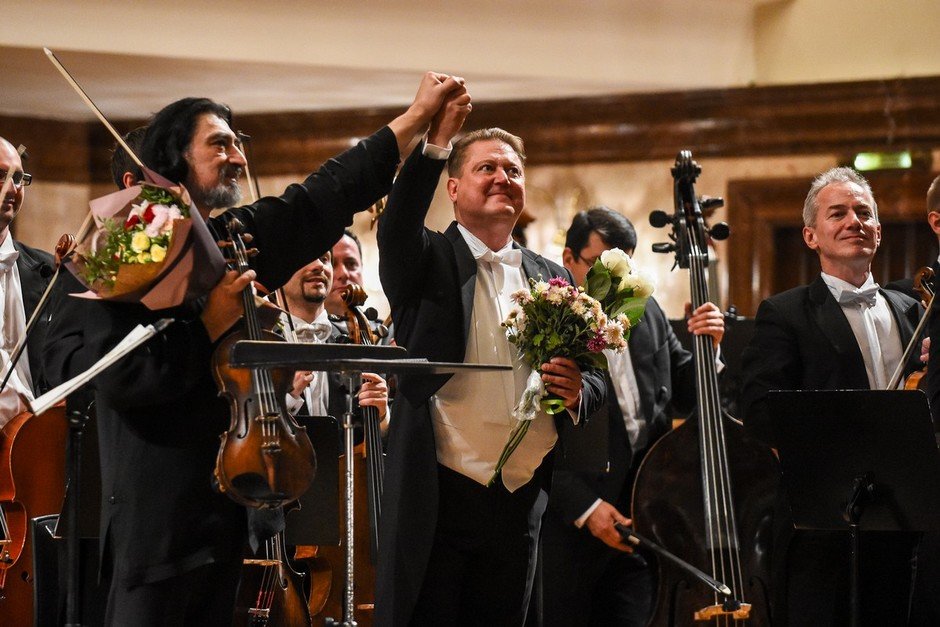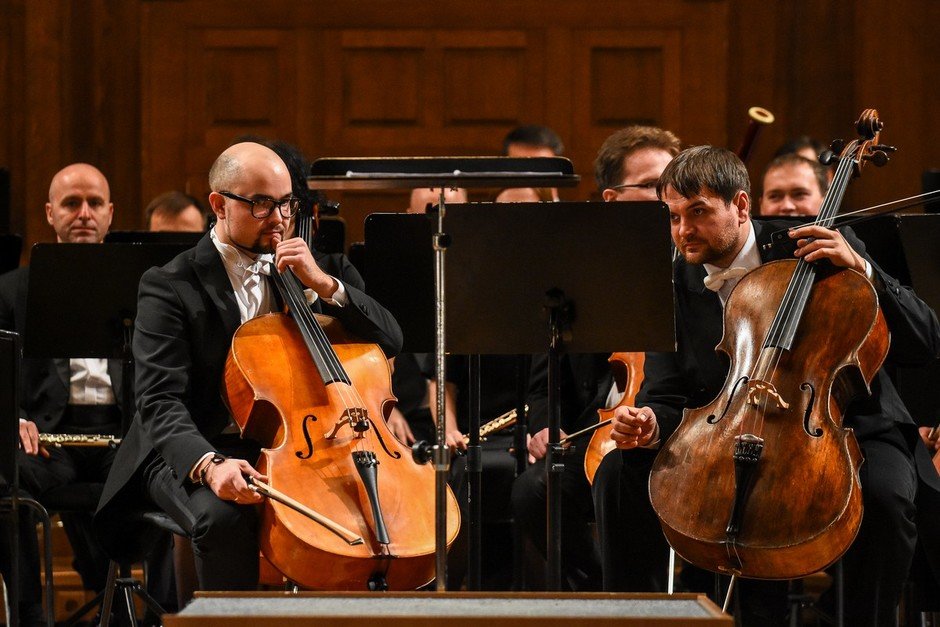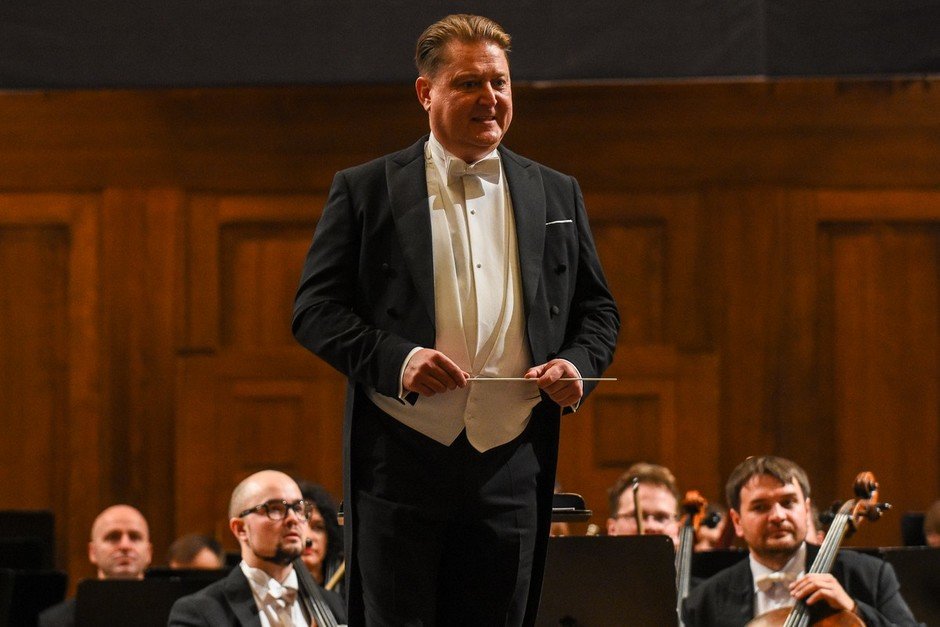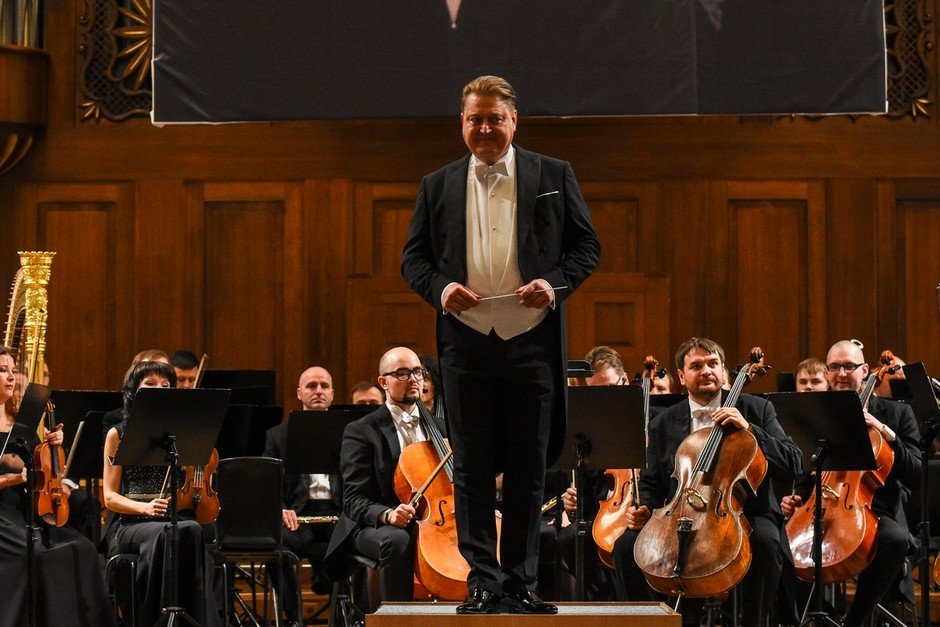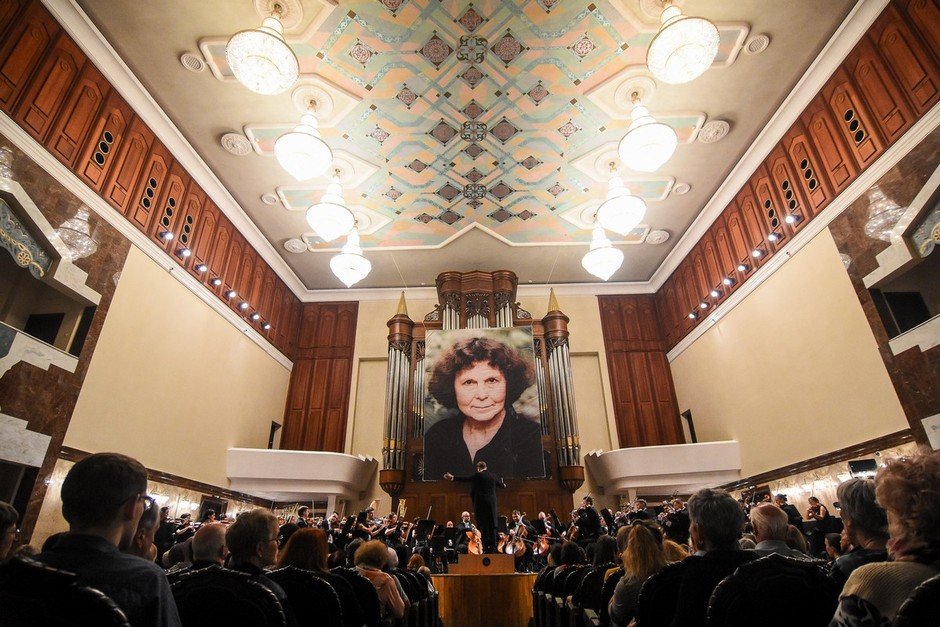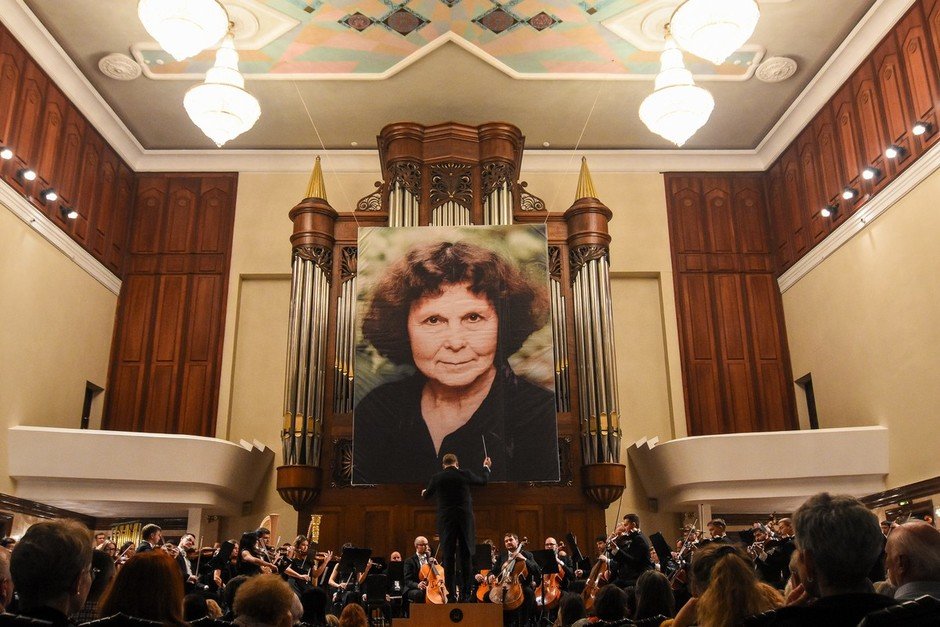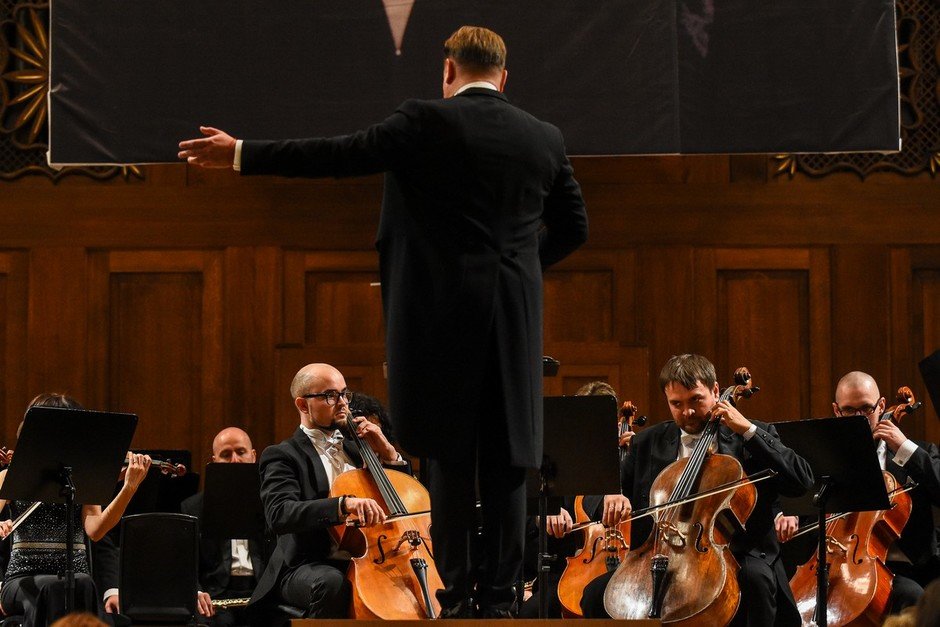Concordia contemporary music festival: who gives gifts to whom
The first concert of the eighth Sofia Gubaidulina International Concordia Contemporary Music Festival was held on 20 October in the Saydashev State Great Concert Hall in Kazan. The first performance of the works in Kazan and the world premiere at once. Read the details in the material of Realnoe Vremya.
From chaos to harmony
There no need to convince anyone that compatriot of Kazan citizens Sofia Gubaidulina is a world star, but here is a paradox — there were no festival named after her in Kazan. There were separate concerts, where she participated, there is a house-museum and the centre named after her, but no festival that would present the music of Sofia Gubaidulina and other contemporary composers – no one bothered to hold such.
The situation changed eight years ago, when such a necessary for the city festival was established by artistic director and chief conductor of the Tatar State Symphony Orchestra Alexandr Sladkovsky. Since then, Kazan fans regularly listen to the cross section of contemporary music. The current festival, which consists of four fundamental programmes, will not be an exception.
The first concert programme in the framework of Concordia began with the performance of the early work by Gubaidulina written in the early '70s — the poem The Fairy Tale Poem. From the romantic story of a piece of chalk that gives people wonderful drawings, sacrificing itself — decreasing from drawing to drawing.
Naturally, romantic Sladkovsky defines The Fairy Tale Poem as a romantic composition. Out of nowhere, from starry cosmic dust there appears a sound that the maestro sensitively picks up on. There is nothing yet, there is chaos, but the conductor gently and firmly transforms it into harmony. He has the complex, allegorical language of Sofia Gubaidulina at his fingertips.
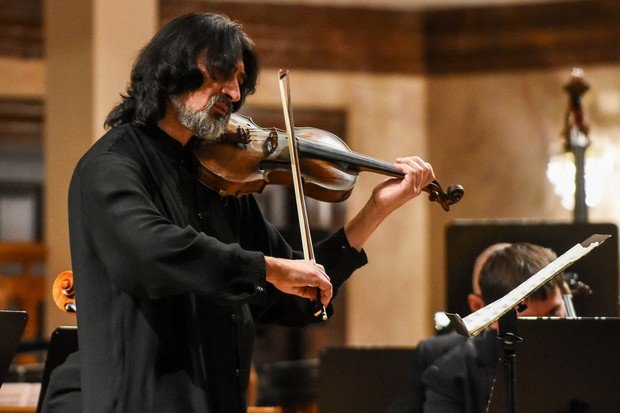
The second work of the first part of the concert — The Sonata for Viola and Piano (arranged for viola and chamber orchestra) by Dmitri Shostakovich, the composer's last work, his thoughts about life and death, the beauty of life and eternity. Shostakovich is especially close to Sladkovsky, the maestro seems to be tailored to the philosophical thoughts of one of the greatest composers of the last century. So it was at the concert, where the viola was played by Alexei Ludevig, it was like a monologue in front of us to the maestro, imbued with depth and a certain amount of drama. ''In much wisdom there is much sorrow,'' said Ecclesiastes.
''Let Poland be Poland''
Shostakovich's Sonata was first performed in Kazan, as well as both works of the second part of the concert — it was Symphony No. 33 and the symphonic poem The Rise and Triumph by Sergei Slonimsky. As for the latter composition, its world premiere was performed in Kazan on 20 October. The author himself — a living classic, one of the largest Russian composers — was present at the concert. Such gift was made to Kazan citizens by Alexander Sladkovsky, who, by the way, celebrated his birthday that day.
The complex symphony of Slonimsky with many musical themes was read by Alexander Sladkovsky as a reference to the past of Russia and thoughts about its future. The pace and rhythms were changing as if pictures illustrating the history of the country followed after each other. And an unexpected final. Sladkovsky is such a master of unexpected finals!
The symphonic poem The Rise and Triumph was created by Sergei Slonimsky to commemorate the centenary of the Poland regained independence. It is a difficult topic, because the history of small Poland, whose importance for the world culture cannot be overestimated, is often perceived one-sidedly. But, as classic of Polish literature Stanisław Dygat said, Poland is not a country, Poland is a land. The land that gave the world Mickiewicz and Norwid, Chopin and Słowacki, Prus, Wajda, Kawalerowicz… The list is long.
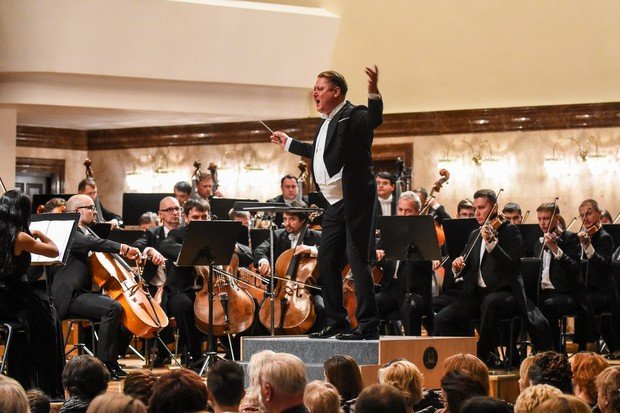
Poland is a romantic land, and Alexander Sladkovsky read Slonimsky's symphonic poem as an absolutely romantic work. In the play of the orchestra led by him there was the tragedy of Katyn, the defeat of the Warsaw uprising, and restless Maciek — a hero of Zbigniew Cybulski from Ashes and Diamonds, faithfully died, The Possessed by Andrzej Wajda, the recovery of the country, finally freed. There was a proud Poland which nobody managed to break.
Slonimsky wrote not an essay ''to commemorate'' — he felt the history of the country, its tragedy of the last 100 years, its incomprehensible power and Poland's finding of what it has long been striving for and what it has always been worthy of — freedom.
In the finale, the maestro, breaking the tradition by virtue of which the conductors are silent at concerts, said that he conducted the works of Sergei Slonimsky as a student. So the arrival of the composer at the opening of the festival of contemporary music is a gift to the maestro's birthday, and a generous gift of the artistic director of the festival to the Kazan public.
